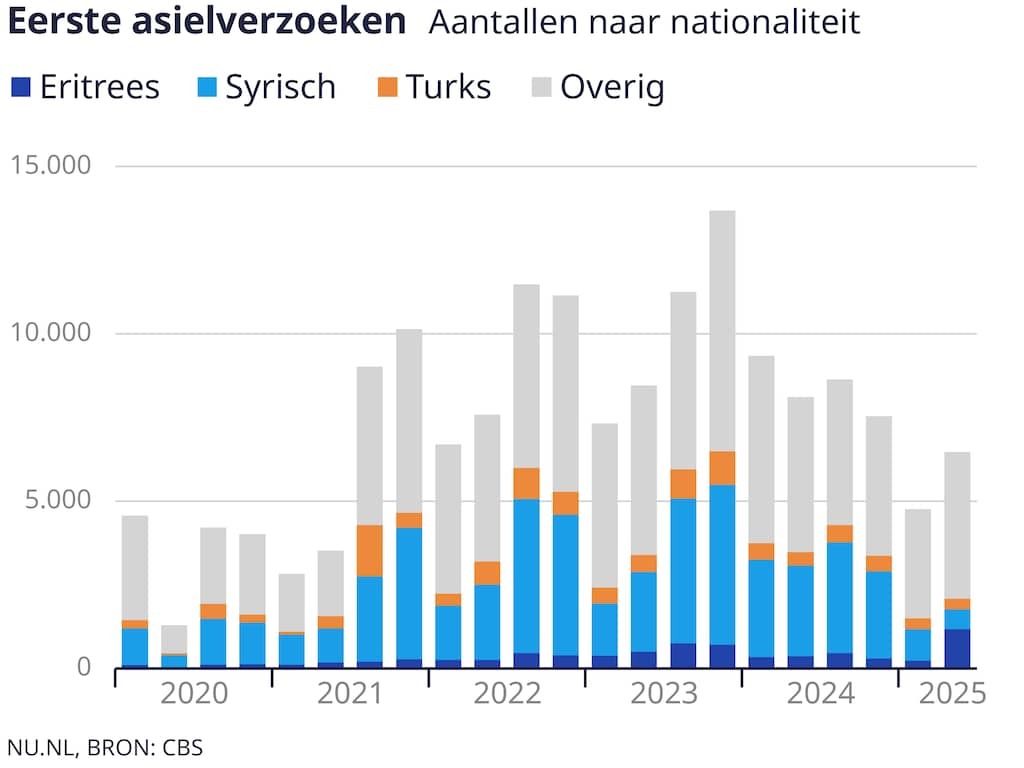
For the first time since 2016, asylum seekers from Eritrea, not Syrians, have submitted the most asylum applications in the Netherlands. The number of asylum requests from Syrians had already decreased significantly since the fall of Bashar Al Assad’s regime, and that decrease continued in recent months.
In April, May, and June as well, there were fewer asylum applications than a year earlier, reports statistics agency CBS on Thursday based on figures from the Immigration and Naturalisation Service (IND). This means that the decrease, which is seen throughout Europe, continued in the second quarter.
It concerns 5,300 people who have applied for asylum for the first time. That is an increase compared to the first quarter of this year, but almost a third less than a year earlier.
Most of those 5,300 people come from Eritrea (1,200). It is the first time since 2016 that the most asylum applications have not been submitted by Syrians.
In recent months, 595 first-time asylum applications were received from Syria. That is 37 percent less than the past quarter and almost 80 percent less than in the same period a year earlier.
At the same time, the number of first-time asylum applications from people from Eritrea increased (dark blue on the map below). Neither the CBS nor the IND has an explanation for this increase yet.

Decline after fall of Al Assad regime
The decrease in the number of Syrians applying for a residence permit in the Netherlands is closely related to the fall of Bashar Al Assad’s regime in December last year.
Although the situation in the country is certainly not stable yet, many Syrians decided to return. The number of Syrians trying to obtain an asylum permit in the Netherlands has also decreased significantly. Where around 3,000 Syrians applied in each quarter of 2024, there were 940 first-time asylum applications from Syrians in the first quarter of this year. Now that number has fallen further to 595.
The processing of the applications was paused for months after the fall of the Syrian regime. The situation in the country was so unclear that it was difficult to decide on an asylum application. Recently, the assessment was resumed, and the outgoing cabinet immediately tightened the policy. Instead of Syrians receiving asylum based on the unsafe situation in the country, it is now being assessed whether a person is in danger themselves.
Syrians still the largest group of family members joining
The decrease is not yet visible in the number of Syrians joining a family member. Recognized refugees can submit such a follow-up application for their family, parents, or partner. The number of family members traveling to the Netherlands was still large in the second quarter. Among them, Syrians are still the largest group.
For example, 3,040 family members from Syria came to the Netherlands in the first quarter, and it concerned 2,825 people in the second quarter. A year earlier, there were just over 2,100 family members from Syria per quarter.